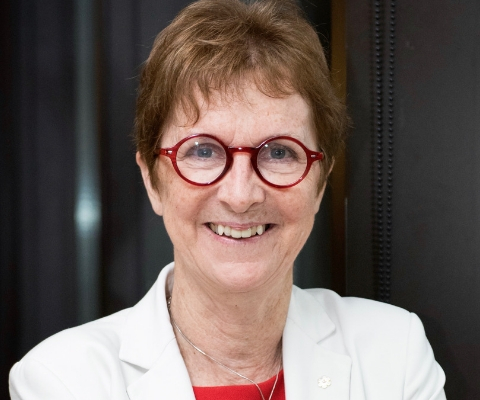Janet Rossant
Dr. Janet Rossant is a senior scientist and chief of research emeritus at the Hospital for Sick Children and a professor at the University of Toronto.
What advice would you offer women pursuing leadership positions in their fields?
Don’t be afraid to push your boundaries. Your first day at work in a new leadership role will be terrifying (mine was), but the more you develop your skillsets, research the role and assemble a team of supporters and mentors, the easier and more satisfying it will become.
What is your definition of success?
A leader needs to engage their team in a common vision for the future and then inspire and empower them to perform to the best of their potential to fulfill the vision.
What is the most enriching part about being a leader in STEM?
Providing an inclusive and inspirational environment to support young scientists and clinicians working to improve child health and then watching and applauding their successes.
What was greatest challenge you’ve faced in your career and how did you overcome it?
The biggest challenge in running a major Hospital Research Institute was to try to be fair and equitable in allocating resources to different groups. This was partially overcome by developing transparent, documented guidelines for scientists to apply for bridging funds, salary increases, start-up funds, etc., while retaining some discretionary funds to attract and retain the very best.
What are the keys to advancing equity, diversity and inclusion in higher education and research?
Creativity and innovation come from bringing diverse opinions together at the table. Universities must actively seek out students and faculty from underrepresented groups of all kinds and remove the barriers to their entry and survival in the system. Diversity without inclusion is not enough. An open, listening, welcoming environment will be needed in all aspects of university life to make ‘outsiders’ feel at home and valued.

